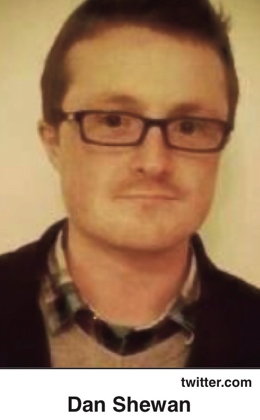Rascals case in brief
In the beginning, in 1989, more than 90 children at the Little Rascals Day Care Center in Edenton, North Carolina, accused a total of 20 adults with 429 instances of sexual abuse over a three-year period. It may have all begun with one parent’s complaint about punishment given her child.
Among the alleged perpetrators: the sheriff and mayor. But prosecutors would charge only Robin Byrum, Darlene Harris, Elizabeth “Betsy” Kelly, Robert “Bob” Kelly, Willard Scott Privott, Shelley Stone and Dawn Wilson – the Edenton 7.
Along with sodomy and beatings, allegations included a baby killed with a handgun, a child being hung upside down from a tree and being set on fire and countless other fantastic incidents involving spaceships, hot air balloons, pirate ships and trained sharks.
By the time prosecutors dropped the last charges in 1997, Little Rascals had become North Carolina’s longest and most costly criminal trial. Prosecutors kept defendants jailed in hopes at least one would turn against their supposed co-conspirators. Remarkably, none did. Another shameful record: Five defendants had to wait longer to face their accusers in court than anyone else in North Carolina history.
Between 1991 and 1997, Ofra Bikel produced three extraordinary episodes on the Little Rascals case for the PBS series “Frontline.” Although “Innocence Lost” did not deter prosecutors, it exposed their tactics and fostered nationwide skepticism and dismay.
With each passing year, the absurdity of the Little Rascals charges has become more obvious. But no admission of error has ever come from prosecutors, police, interviewers or parents. This site is devoted to the issues raised by this case.
On Facebook
Click for earlier Facebook posts archived on this site
Click to go to
Today’s random selection from the Little Rascals Day Care archives….
Click for earlier Facebook posts archived on this site
Click to go to
Today’s random selection from the Little Rascals Day Care archives….
We believe them, we believe them not….
Oct. 26, 2012
“As in the McMartin case, the North Carolina ‘experts’ dismissed absurd elements of the children’s stories and fixated on the guilt of the caretakers.
“When a child put two dolls together, it counted as evidence; when he claimed that Miss Dawn cooked him in the microwave, he was taken to be speaking figuratively.”
– From “Day Care, Satanism and ‘Therapy’” by Alexander Cockburn in the Los Angeles Times (Sept. 5, 1991)
Ex-D.A. ‘not in a position to talk about it’
Dec. 7, 2011
H. P. Williams Jr. was district attorney during the Little Rascals trial. He now practices criminal defense law in Elizabeth City.
I called to ask whether he had changed his mind about the guilt of the Edenton Seven.
“I’m not in a position to talk about it,” he said.
Why is that? I asked.
“It’s just not a question I choose to answer.”
As I made another stab at continuing the conversation, he ended it: “Have a good day. Goodbye.”
Williams was 39 when the first charges were filed. Today he is in his early 60s. I held out hope that over the years he had reexamined his role in crushing the lives of seven innocent citizens, had suffered a few dark nights of the soul, had harbored an unspoken wish to make amends, had summoned the honesty and courage to break with the prosecutors’ code of silence when faced with the error of their convictions….
I was naive.
McMartin case brought emulation, not illumination
Nov. 2, 2012
“The (McMartin) episode and its conclusion were ravaged by the mass media and produced a tremendous repercussion throughout the nation – but not the one of caution, as one might have expected…. (Time magazine reported that) ‘Nationally, the attention generated by the case set off an explosion of reports claiming sexual abuse of children, increasing such reports from 6,000 in in 1976 to an estimated 350,000 in 1988.’”
– From “Witch-Children: From Salem Witch-Hunts to Modern Courtrooms” by Hans Sebald (1995)
Shame links Edenton with other ‘ritual abuse’ sites
 Oct. 11, 2015
Oct. 11, 2015
“Satanism lacks a (Jim) Jones or (David) Koresh. Satanism has no Jonestown, no Waco, no Kool-Aid, no casual point of reference.
“This is because Satanic cults, as imagined in popular culture, do not exist.
“Still, some places across the country – West Memphis, Arkansas; Manhattan Beach, California; Edenton, North Carolina; Austin, Texas – belong to a brotherhood of cities united not by the stunned, silent grief of a tragedy like Waco’s, but by the shame of having left innocent families’ lives in ruin in the fervent pursuit of an imaginary evil….
“The ‘Satanic Panic’ of the 1980s and early ’90s was arguably even more frightening than a typical cult precisely because of this lack of a central figure or place; anybody could have been involved, and nobody was above suspicion….”
– From “Conviction of Things Not Seen: The Uniquely American Myth of Satanic Cults” by Dan Shewan at Pacific Standard (Oct. 8)











0 CommentsComment on Facebook